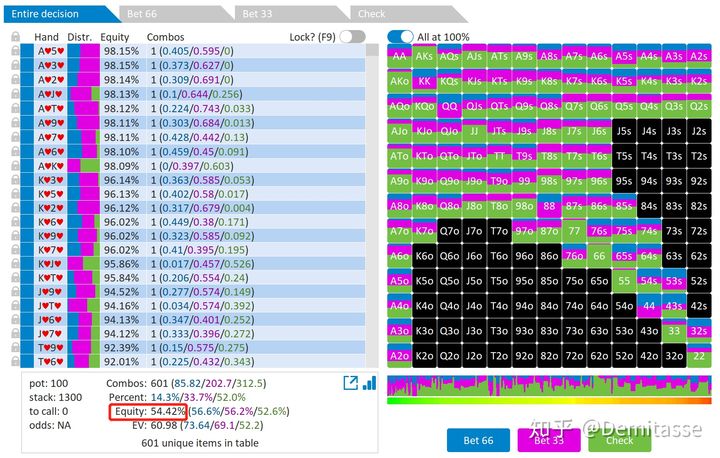
using the STARR method you can list down specific (real) situations.

But i'm always try to find a balance between buy-in vs quality of play to withstand lots of tourneys where i min-cashed or not at all. I don't really care about the results at this moment. I just use a fixed bankroll able to withstand lots of quality games. I get ITM% around 10+ and that's fine but i'm mostly interesting on problematically played hands after the tourney. As i always try to find reasons to fold, i always try to find reasons to evaluate problematic hands. I'm always trying to fix my worst plays and never really look at my wins or won hands. In addition, i would have also a bigger sample of awkwardly played hands so i can evalute better after the tourneys. Also my plan balances between playing + reading + evaluating. I never, for example, try to read 150 book pages because i want to carve book stuff into my head while playing this stuff. Quality play requires lots of energy and time. I think sharing your day between playing, reading and evaluating in equal will improve one's arsenal overtime and that's logical.

I like to think myself as a trainee which needs training and games rather results. That also solves the tilt issue, making you a more focusing player.Īlso, when i read books i try to focus or enter the pro's mind for playing a hand. I push myself hard to not fall into that tendency of snap-reading and say ok, next. Trying to grasp the plays, especially from pros close to your own style, really helps your game overtime since the play gets sticked on brain. For example Super System is a book not going to read, ever, regardless it's cult status. I consider myself more of a TAG rather a LAG to read that book so i'm more close to books like anything of Harrington, Winning tournaments one hand at a time and such. In short, getting more selective of books and internet articles will make you better player as well. Also be very careful of advices given by players that play a different style from you.


 0 kommentar(er)
0 kommentar(er)
